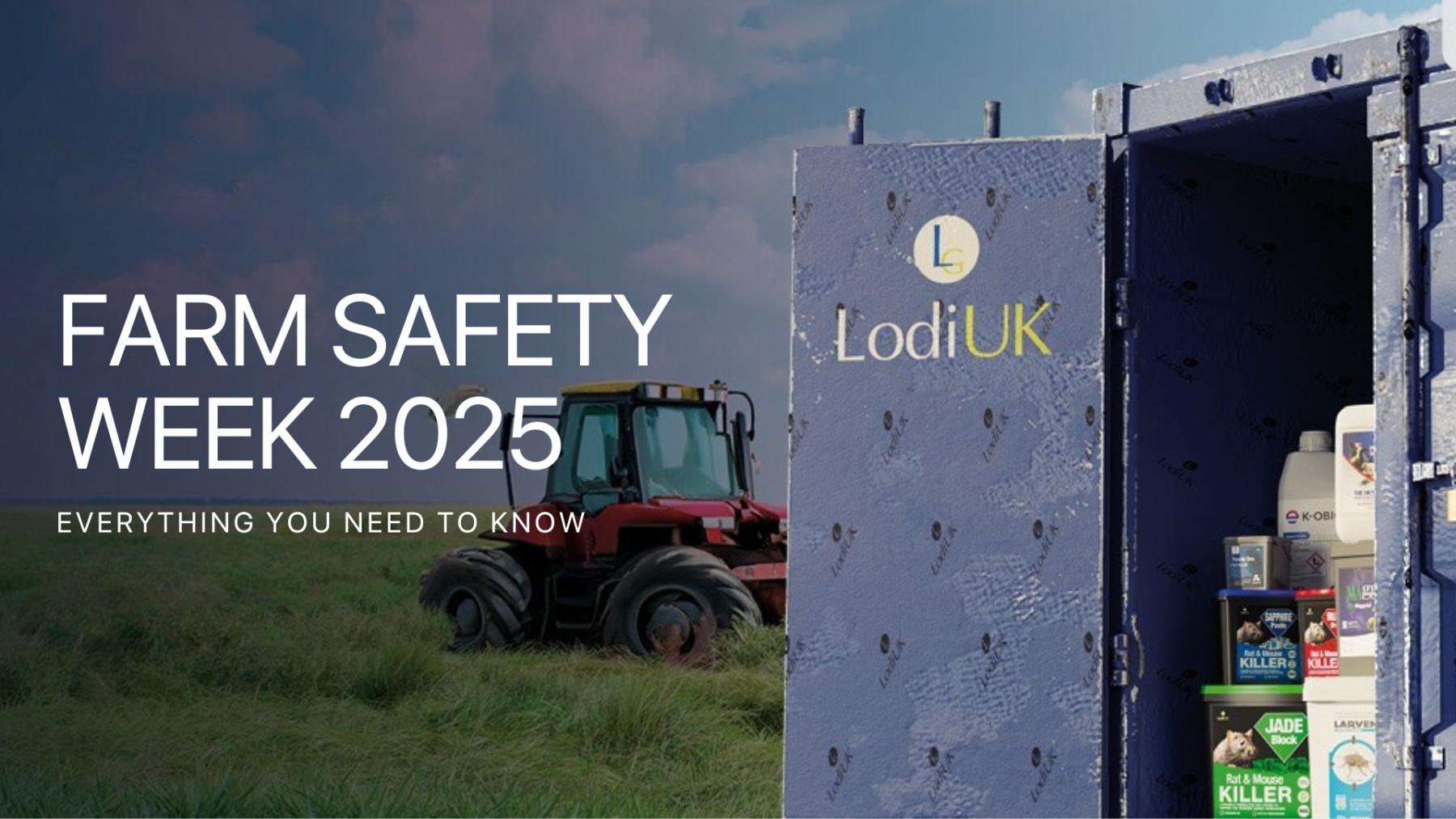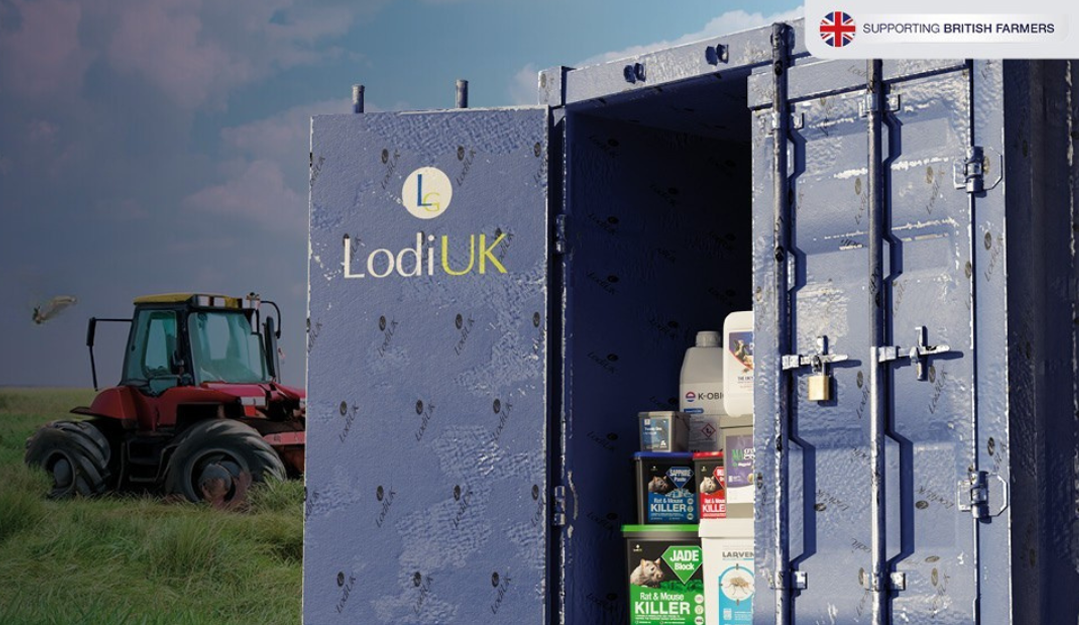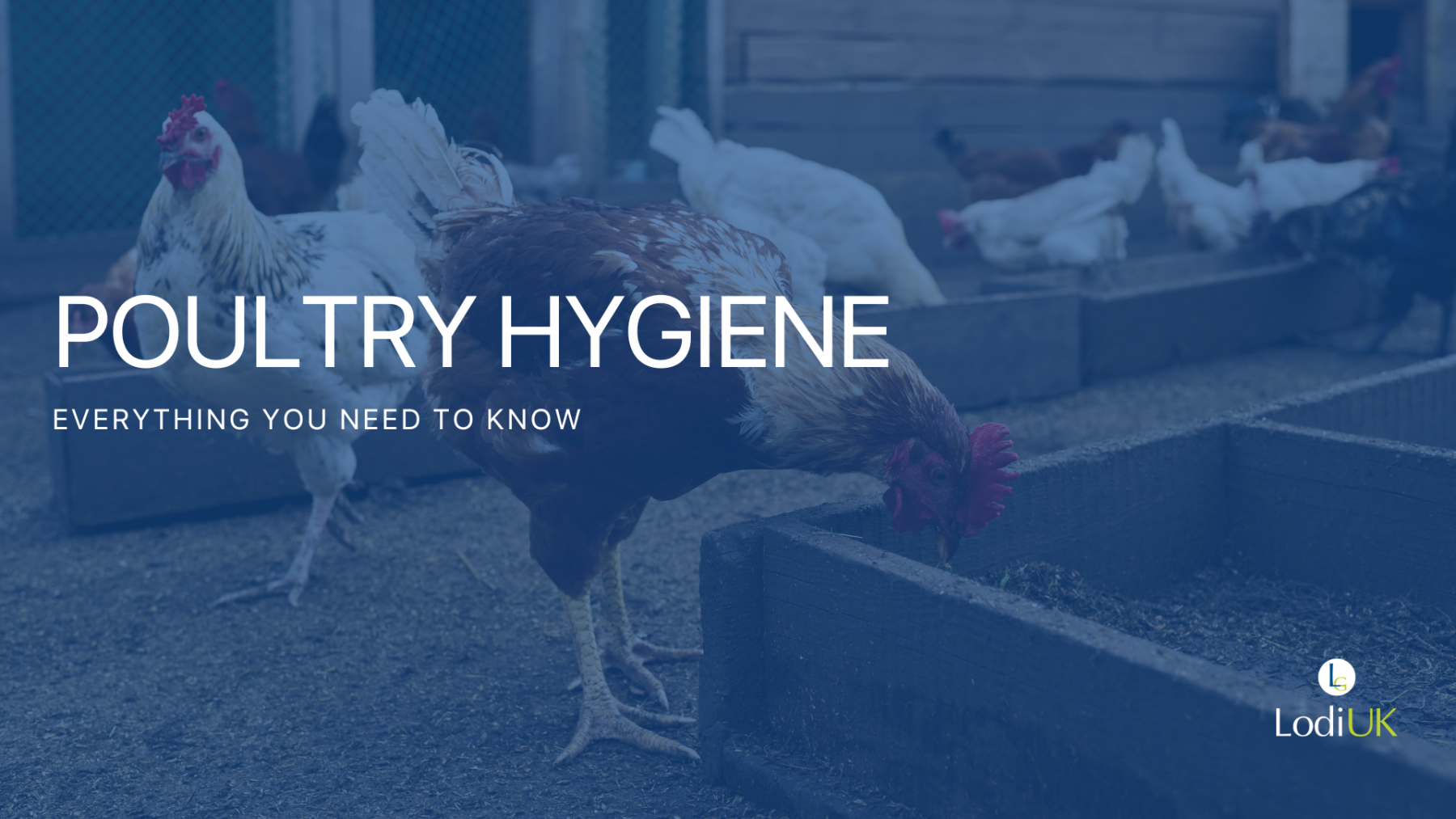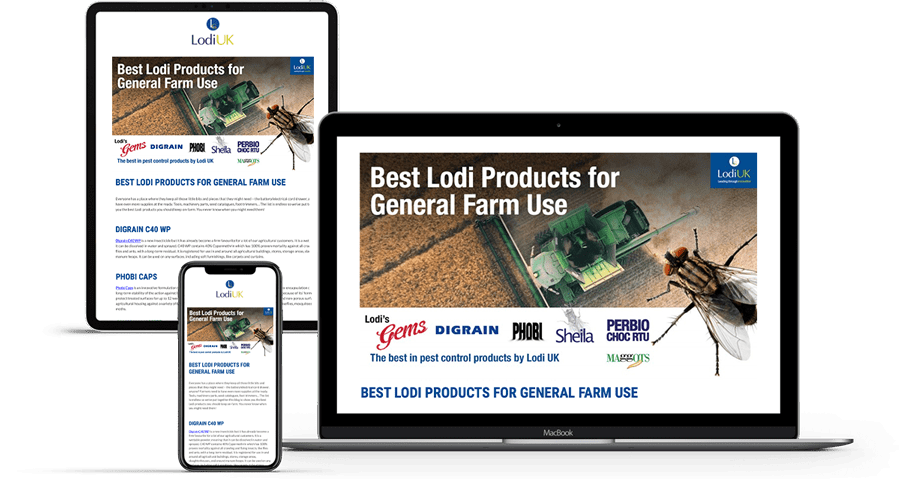
On working farms, pest control isn’t a luxury, it's a necessity. Whether you’re battling rats in the feed store, flies in livestock housing, or insects in grain stores, pest control products are part of everyday life. But with that familiarity comes danger.
This Farm Safety Week 2025, we’re urging UK farmers to stop and ask the question: Are you storing and using pest control products as safely as you think?
Because the truth is, while most farmers wouldn’t dream of leaving a diesel tank unlocked or vet meds out on display, it’s not uncommon to see tubs of rodenticide stashed on a shelf, or insect sprays left in the corner of the dairy.
If this rings true, it’s time to Rethink The Risk.

The Hidden Hazards in Everyday Practice
Across the country, we’ve seen some worrying storage practices on farms. Bait boxes next to pet food. Unlabelled tubs stuffed behind feed bins. Old, open products covered in dust, their instructions long since unreadable.
Rodenticides and insecticides contain toxic active ingredients designed to control pests efficiently, but they can also pose a serious risk to human health, pets, livestock, and non-target wildlife if mishandled. Many of these products are classed as hazardous substances and fall under strict regulations for a reason.
Improper storage and use not only increases the risk of accidental exposure or contamination, it also opens the door to legal consequences, especially if someone else on the farm misuses them.
And it’s not just about storage. Who’s applying the bait? Are they trained? Are they using gloves? Are they logging where it’s gone?
Too often, these steps are skipped in the name of convenience or routine.
When “It’ll Be Fine” Isn’t Good Enough
We hear it all the time: “We’ve always done it this way.”
Or worse: “The new lad can sort it out, he’ll figure it out.”
But in today’s regulatory environment, and with the strength of modern pest control products, these shortcuts come with serious consequences.
Untrained use of professional rodenticides is not only illegal, it’s dangerous. Anyone applying rodenticide on a farm must be trained under a CRRU-recognised course. Without this, you could be liable for misuse, wildlife poisoning, or breaching stewardship codes of conduct that protect your farm's future access to essential products.
If a family member, seasonal worker or contractor is helping with pest control, you as the farmer or land manager are legally responsible for ensuring they know how to do it safely, correctly and with the right certifications.
What Safe Chemical Use Looks Like
The good news? Chemical safety doesn’t require huge investment, just a shift in mindset and good practices. Here's what safe handling and storage should include:
- Locked chemical storage: Use a designated cupboard or shed with restricted access.
- Original packaging: Always keep products in their original containers with visible, intact (and in date) labels.
- Separation from feed: Never store pest control products near food, water sources, livestock medicine, or bedding.
- Dry and ventilated areas: Prevent degradation and reduce the risk of chemical leaks or fumes.
- PPE and documentation: Store gloves, coveralls, and goggles nearby. Keep a COSHH log and update it regularly.
If a pet, child or visitor could access it, or if you couldn’t say what’s in a container without opening it - it’s not safe.

Why Training Matters More Than Ever
Farmers are excellent at protecting their land, their animals, and their equipment. But are we doing enough to protect our people?
Proper training is the foundation of safe chemical use. It’s not just about ticking a box to meet a requirement. It’s about ensuring you, your staff, and your family are protected, and your farm remains compliant.
At Lodi UK, we offer tailored training that is farmer-focused. These sessions cover:
- Safe product handling and correct PPE use
- Legal responsibilities under CRRU and other frameworks
- Environmental protection and best practice for baiting
- Record keeping, monitoring, and audit readiness
With the right training, pest control on farms can become safer, more effective, and fully compliant with modern regulations.
Think Safety. Think Stewardship.
It’s not just human health on the line. Wildlife and pets are often unintended victims of poor pest control practices. Secondary poisoning, watercourse contamination, and exposure of non-target species are all real risks when chemicals are used carelessly.
That’s why we advocate for Integrated Pest Management (IPM), which is an approach that combines physical, biological and chemical tools in a way that protects your bottom line and the environment.
Chemical use can be safe when done correctly. But it must be done with intention, with care, and with knowledge.
Backing British Farmers with Practical Support
As one of the UK’s leading manufacturers of pest control chemicals, Lodi UK has spent decades supporting British agriculture with safe, reliable solutions. From rodent control and insect protection to grain store treatments and ground-care, we’re proud to be part of the frontline team helping farms thrive.
We know farming isn’t just a job, it’s a legacy. Let’s protect the people, animals, and land that sustain it.
This Farm Safety Week, take five simple actions:
- Walk your chemical store and check for outdated or unlabelled products
- Lock away anything that could pose a risk
- Book or update your pest control training
- Review your COSHH documentation and PPE
- Make sure everyone working on your farm understands how to use chemicals safely
Rethink the risk. Store it right. Use it safely. Train your team.
If in doubt, always contact a Professional Pest Controller. They’ve got the tools & the know-how.
If you’re unsure where to start, give us a call. The Lodi UK team is here to help.
RELATED DOWNLOADS







